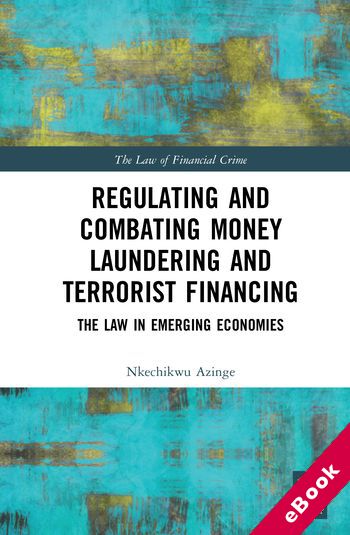
The device(s) you use to access the eBook content must be authorized with an Adobe ID before you download the product otherwise it will fail to register correctly.
For further information see https://www.wildy.com/ebook-formats
Once the order is confirmed an automated e-mail will be sent to you to allow you to download the eBook.
All eBooks are supplied firm sale and cannot be returned. If you believe there is a fault with your eBook then contact us on ebooks@wildy.com and we will help in resolving the issue. This does not affect your statutory rights.
This book analytically reviews the impact of the global anti-money laundering and counter-terrorist financing (AML/CFT) framework on the compliance trajectory of a number of jurisdictions to this framework.
The work begins by examining the international financial sector reform and its evolution to inculcate the global framework for AML/CFT regulations. It challenges the resulting uniform AML/CFT due to its paradoxical impact on the compliance trajectory of African countries and emerging economies (ACs/EEs). This is done through an examination of the pre-conditions for effective regulation and compliance drivers for ACs/EEs that reveals the behavioural impact of the AML/CFT standards on the bloc of countries. Through the application of agency theory, it explores the relationship between ACs/EEs on the one hand and the international financial institutions that formulate, disseminate and facilitate compliance with the global framework for AML/CFT standards on the other. The remaining chapters review empirically the compliance pressures and resulting compliance trajectory of ACs/EEs with the AML/CFT standards. The final part of the book provides a detailed explanation of the compliance challenges of ACs/EEs and the legitimacy concerns that facilitate this.
This book offers a new direction on the impact of global AML/CFT standards on ACs/EEs and contributes to the understanding of the conditions under which the global standards are likely to facilitate proactive compliance within these blocs of countries. As such it will be a valuable resource for academics, researchers and policy-makers working in this area.